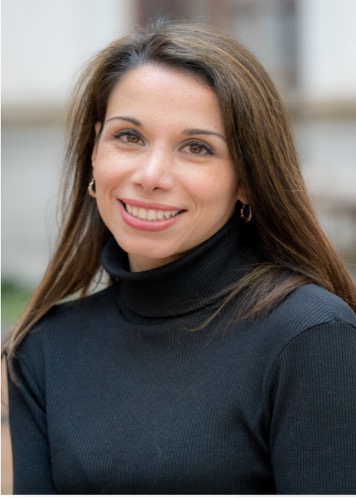(Photo from NJIT)
NJIT is home to both students and staff of diverse backgrounds; one distinct member is Dr. Grazia Gangitano, who serves as a pillar of support for incoming transfer and first-generation undergraduate students. Her journey of becoming the Executive Director of the Office of Student Transition spans the course of 11 years and three degrees from distinct colleges.
Born and raised in New Jersey, Dr. Gangitano got her master’s degree in counseling from Columbus State University. Her first encounter with NJIT was when she applied for a staff job in the College of Computing — now known as the Ying Wu College of Computing. Although she was not hired, she was well-liked and was offered a position at the Martin Tuchman School of Management.
Gangitano eventually started working with Career Development Services and later become the Executive Director of the Office of Transition. As the executive director of the Office of Transition, she has helped create many programs that help students no matter where they come from. This ambition is reflected in her academic life as well.
Her dissertation for her doctorate degree in counselor education examined the experiences of First-Generation Students of Color from Low-Income Households, also known as FGMLs, and the necessary actions universities should take in order to accommodate them. Her findings led her and a colleague to create First Fellows, a first-generation student organization which helps students become accustomed to NJIT and prepares them for a professional environment through peer mentorship.
This interview is edited and condensed for clarity.
What does a typical day in the Office of Transition look like?
At NJIT, it’s different every day, which is wonderful. We work with first-year students to make sure they know about registration, withdrawal deadlines, and policies and procedures which may be new to them.
We also have the major/minor fair that’s run through our office every year; planning for that does take some time to get everybody involved and things set up. Each day looks a little different for us, but it involves a lot of working with students, which we love. We also teach sections of the first-year seminar courses.
Your dissertation covers how FGMLs experience college. Would you say your experience is similar or different to what students are experiencing now?
The interesting part is I am first-generation, but I’m not a student of color, and my family was more middle-income than low-income. However, wanted to see what the experience was for someone different. For example, when I filled out a FAFSA, I had no idea how to do it; my parents didn’t read that well in English at the time, so they just handed me their tax paperwork, and I had to try and figure it out on my own.
I know this was a similar hurdle, but I don’t have to combat racism or microaggressions. Because I’m white, I didn’t have to go through that. But some of the students I interviewed for the dissertation did go through that. There was a lot of sexism that students had gone through that I didn’t particularly remember going through when I was in college at Rutgers.
However, Rutgers was more liberal arts-focused, and I may have missed it or not even acknowledged it. But the students I interviewed made sure to mention that these things came up for them. It was interesting to learn, and what I hope is that I can take what I found and build a program that schools across the nation could use.
I would love to see a first-generation student program at NJIT, outside of the Educational Opportunity Program and the First Fellows student organization.
Has COVID-19 changed how your department works?
Yeah, we do virtual appointments and in-person appointments depending on what students want. Our students who are commuters have preferred virtual meetings, while some prefer time in-person.
We do one or two days a week at home and then the rest in person, so it does give some of the staff flexibility. You keep staff and students happy by giving them the choice to select what works best for them.
Many colleges have reported a 14% drop in transfer student enrollment. Has this also occurred at NJIT?
The 14% drop [in transfer student enrollment] has shockingly just hit NJIT this past year [2021-2022], but it’s been happening across different colleges across the country for the past five years. That has mainly been because a lot of students are still deciding where they want to go based on scholarships.
NJIT doesn’t offer as many scholarships for incoming transfer students as other schools do, so we’ve talked to the Office of University Admissions to see if there’s ways to give our transfer students more money. If they’re getting accepted somewhere else and the other school is providing them with a bigger scholarship package, they are going to go to the other school.
Is NJIT able to retain transfer students?
Retention-wise, that’s a little different. After they’ve been admitted, our transfer students do mostly stay here. Personally, I haven’t seen as many leave, but again, I only see and work with them prior to their first semester at NJIT.
Our first-year students tend to drop because maybe this wasn’t their first-choice school, or they feel that maybe the campus environment, once they’re here, is not for them, and they want to find an environment that works for them.
Do you feel more comfortable in your dealings with students now that you have a lot more experience?
I think we should never feel too comfortable because there will always be changes. Each student brings in different concerns, so that’s why it must be very individualized. Students have a lot more going on than just classes, right? They have families, they have friends, they have relationships, and they have jobs.
I think the pandemic shared with us that things can change suddenly, and then we have to adjust. Some of us can adjust better than others, and we need to help those who can’t adjust or try to help them move along in different ways.
Are there any actions you and your staff take to help maintain good connections with students?
We have professional development that’s good to do even once you’ve had a position. I encourage our staff to go to conferences and learn new things. We did a session on creating equity in advising with some of the advisors that are part of a committee on campus. And the person who ran it, he did a wonderful job.
He talked about how even the way we decorate our offices is important. Is it welcoming to a student? Do you have snacks there? Even these things that sometimes people don’t think about influence the creation of a warm and welcoming environment for students.

































